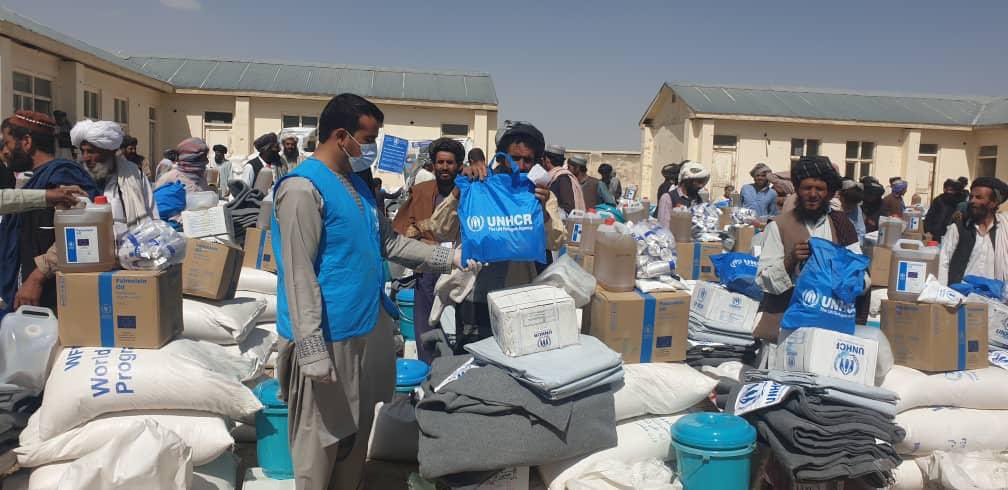Last Updated on September 3, 2021 11:32 pm by INDIAN AWAAZ
As the United Nations resumes flying humanitarian supplies to parts of Afghanistan, the EU and other countries are debating how to increase aid to Afghans without lending credibility to the Taliban.

AMN / WEB DESK
The United Nations has resumed air operations in Afghanistan through its Humanitarian Air Service in a bid to enable some 160 aid organizations to continue their activities in the war-ravaged country’s provinces, UN spokesperson Stephane Dujarric said on Thursday.
Aid supplies from the United Arab Emirates also arrived in Afghanistan on Friday.
The UN flights — operated by the World Food Program — connect the Pakistani capital of Islamabad with Mazar-i-Sharif in northern Afghanistan and Kandahar in the southeast.
Dujarric said the Rome-based food program has reported that three flights have landed in Mazar-i-Sharif since August 29 and efforts are being made to increase operations to additional regions.
As aid operations to Afghanistan take off, the European Union has been trying to decide how best to provide aid to Afghans without lending recognition to the Taliban.
EU foreign policy chief Josep Borrell said there could only be engagement according to strict conditions, and that engagement did not equate to regarding the fundamentalist group as Afghanistan’s official rulers.
“In order to support the Afghan population, we will have to engage with the new government in Afghanistan, which doesn’t mean recognition. It’s an operational engagement,” Borrell said.
The EU’s chief diplomat said women’s rights must be upheld and the country would have to form an inclusive, representative transitional government.
Provision of aid would be dependent on the level of access given by the Taliban.
China’s embassy could become aid gateway
A Taliban spokesman said China would be keeping its embassy in Kabul open. Suhail Shaheen tweeted: “The Chinese Deputy Foreign Minister said that they would maintain their embassy in Kabul, adding our relations would beef up as compared to the past.”
